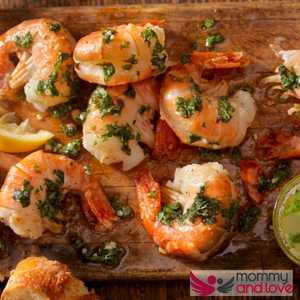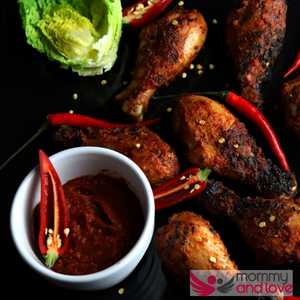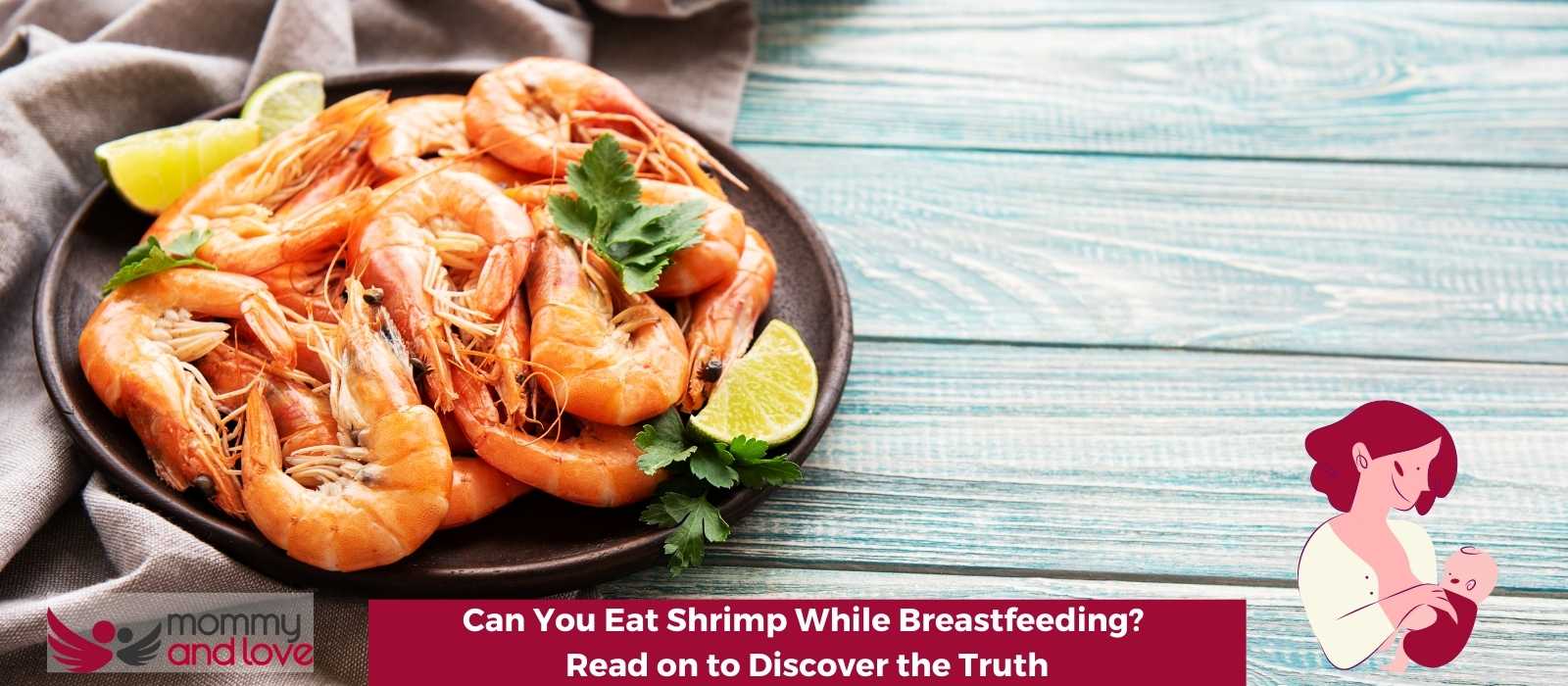Many breastfeeding mothers are curious about what foods are safe and what they should avoid. One of the most popular queries is this: can you eat shrimp while breastfeeding?
This is a valid question, as you want to make sure that you are providing the best possible nutrition for your baby. In this blog post, we will explore the topic of eating shrimp while breastfeeding. Is it safe? What are the benefits? Keep reading to find out!
What Are the Health Benefits of Eating Shrimp When Breastfeeding?

Shrimp provide many nutritional benefits to a breastfeeding mother. It’s an excellent source of protein, essential vitamins such as vitamin D, and minerals.
Vitamin D is important for bone health. It also helps the body absorb calcium, which is important for breastmilk production. And since lactating moms are at an increased risk of vitamin deficiency, it is good to have reassurance that they can continue to enjoy their favorite foods that are healthy in their diet.
Omega-3 fatty acids are also important for your baby’s brain development. Some say that they can also help reduce the risk of postpartum depression. You can read more about your nutrition after giving birth here: Foods to Eat After Giving Birth
Shrimp is low in saturated fat while being an excellent source of omega-3 fatty acids and other essential nutrients like selenium, phosphorus, and iodine. All of these nutrients are important for the health of both mother and child.
Is It Ok to Eat Shrimp When Breastfeeding?
You may have heard that seafoods are off-limits when you’re nursing. But what about cooked, frozen, or raw shrimp? Here’s what you need to know if you want to eat shrimp while breastfeeding.
Shrimp is high in protein and low in mercury. It is generally safe to eat during pregnancy and lactation. However, it’s important to note that raw shrimp, crawfish, ceviche as well as raw fish, can sometimes be contaminated with harmful bacteria.
Cooked shrimp is the safest way to enjoy this shellfish. They’re less likely to be contaminated with harmful bacteria than raw or frozen shrimp.
If you’re pregnant or nursing, don’t eat ceviche or seafood that has been cooked in unrefined peanut oil. Peanut oil can contain harmful toxins that can be passed from the mother to the baby.
What Are the Health Concerns About Shrimp Consumption While Nursing?
There are a few health concerns that you should be aware of if you’re considering adding shrimp to your diet.
Allergies
It is considered a problematic food because it can potentially cause food allergies. Some babies can develop a shellfish allergy to the proteins, and this can cause serious reactions. If you have a family history of allergies, or if your baby shows any reactions to potential allergens, it’s best to avoid it altogether.
Two of the most common signs of an allergic reaction are difficulty breathing and frequent vomiting. Your baby may also experience hives, rashes and diarrhea. If your baby develops any of these symptoms, call emergency services right away.
So, don’t eat shellfish if you have a food allergy because it can be life-threatening.
Food Poisoning
Another concern is the possibility of food poisoning. Be careful when you consume shrimp because it may contain bacteria that can cause food-borne poisoning. This is more likely if the shrimp are raw or not cooked properly. If you’re concerned about food poisoning, it’s best to eat shrimp that is fully cooked.
However, there are a few things to keep in mind if you’re planning on eating shrimp while breastfeeding.
First of all, it’s important to make sure to purchase shrimp from reliable sources such as a hygienic store. How a store handles seafood can affect its quality. The shrimp should not have any rings or spots unless it’s a spotted shrimp.
If you don’t plan on eating the shrimp right away, choose frozen shrimp instead because they have a longer shelf life.
Spicy Foods

Secondly, it’s important to avoid any spicy seasonings or sauces on your shrimp. These can cause digestive issues for your baby if they’re ingested through your breastmilk.
Finally, remember that moderation is key when it comes to shrimp, or any food for that matter. If you eat fish and shrimp in large quantities, it can lead to digestive issues for you and your baby.
So, if you’re planning on eating shrimp while breastfeeding, make sure to do so in moderation.
Why Breastfeeding Moms Should Be Concerned About Mercury in Seafood?
Most people are aware that too much mercury can be poisonous. What many don’t realize is that mercury intake during lactation can be just as dangerous.
Mercury poisoning can cause a wide range of health problems, including brain damage and delays in the nervous system development of a baby. This also applies to weaning; check out our article on Baby Led Weaning and Shrimp
However, the general consensus is that nursing mothers should limit their mercury to no more than 12 ounces of low mercury fish and seafood per week. This includes all types of seafood, not just shrimp.
Most fish and shellfish are not safe to eat while breastfeeding. But shrimp is among the few most commonly eaten seafood that is low in methyl mercury. Pollock, canned light tuna, catfish, and salmon are other seafood that is considered safe to eat.
What Seafood Should You Avoid While Breastfeeding?
The Centers for Disease Control and Prevention (CDC) recommends that pregnant women and women who might become pregnant should avoid eating fish high in mercury such as sushi, shark, mussels, tilefish, calamari, oysters, crabs and king mackerel.
The FDA recommends that babies not consume these fish because their nervous systems are still developing.
If you are breastfeeding, you should also avoid eating these fish because mercury can pass into your breast milk and harm your baby.
Does Eating Shrimp Affect Breast Milk Supply?
No. Shrimp doesn’t affect your ability to produce breastmilk. If you want to boost your milk supply there are other foods that are considered galactagogues that promote the production of breastmilk. We’ve created a post on Natural Ways to Increase Breast Milk Supply if this is something you are worries about.
Conclusion
Breastfeeding mothers should be aware of the health concerns associated with eating seafood, including shrimp. While shrimp are considered safe to eat, it’s important to remember that moderation is key. You should avoid eating any fish that can be harmful to both you and your baby.
If you want to take extra precautions before eating raw seafood and what certain foods to avoid, you can always talk to your healthcare provider or registered nurse and seek professional medical advice.

This article was written by Sandra Baker – full time writer and the mother of four amazing kids (including twins!)
She’s also a breastfeeding counselor and has spent years helping new parents learn how to care for their children. When she’s not writing or caring for her children, Sandra likes to spend time reading and taking walks with her husband.




